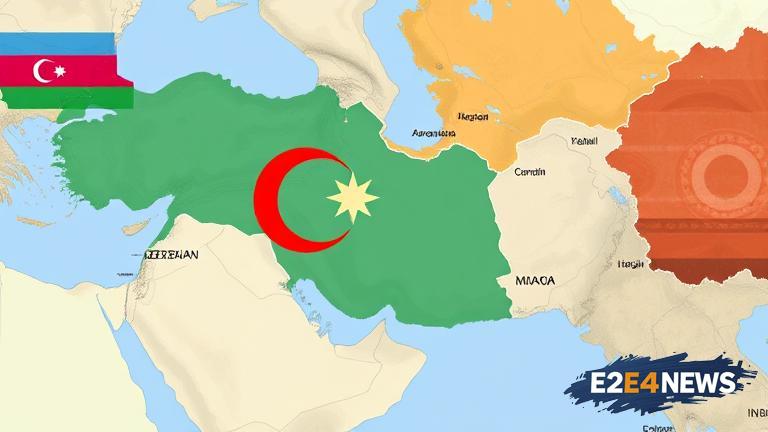Azerbaijan has emerged as a key player in the regional energy security landscape, thanks to its strategic location at the crossroads of Europe and Asia. The country’s rich oil and gas reserves, coupled with its extensive pipeline network, make it an essential partner for European countries seeking to diversify their energy sources. Azerbaijan’s energy sector has experienced significant growth in recent years, driven by large-scale projects such as the Shah Deniz gas field and the Baku-Tbilisi-Ceyhan oil pipeline. The country’s state-owned oil company, SOCAR, has been instrumental in driving this growth, with a focus on increasing production and expanding its export capabilities. Azerbaijan’s energy exports have been steadily increasing, with the country becoming a major supplier of oil and gas to European markets. The Southern Gas Corridor, a major pipeline project, is set to further increase Azerbaijan’s energy exports to Europe, providing a significant boost to the country’s economy. The project, which includes the Trans-Anatolian Natural Gas Pipeline (TANAP) and the Trans-Adriatic Pipeline (TAP), will enable the transportation of Azerbaijani gas to European markets, reducing the region’s dependence on Russian energy supplies. Azerbaijan’s strategic location also makes it an important transit country for energy supplies from other countries in the region, including Kazakhstan and Turkmenistan. The country’s energy sector is expected to continue growing, driven by ongoing investment and development projects. Azerbaijan’s government has implemented a range of policies aimed at supporting the growth of the energy sector, including tax incentives and investment in infrastructure. The country has also been actively engaged in regional energy cooperation initiatives, including the European Union’s Southern Gas Corridor project. Azerbaijan’s energy security is also closely tied to its national security, with the country seeking to reduce its dependence on imported energy supplies. The country’s military has been involved in a number of conflicts in recent years, including a dispute with neighboring Armenia over the Nagorno-Karabakh region. Despite these challenges, Azerbaijan remains committed to developing its energy sector, with a focus on increasing production and exports. The country’s energy sector is also expected to play a key role in supporting economic growth and development, with the government aiming to reduce poverty and increase living standards. Azerbaijan’s energy security is also closely linked to its relationships with other countries in the region, including Turkey and Russia. The country has been seeking to strengthen its ties with European countries, including through the development of new energy infrastructure. Azerbaijan’s energy sector is expected to continue playing a critical role in regional energy security, with the country’s strategic location and rich energy reserves making it an essential partner for European countries. The country’s ongoing investment in energy infrastructure, including pipelines and production facilities, is expected to support the growth of the energy sector in the coming years. Azerbaijan’s government has also been actively engaged in promoting the country’s energy sector, including through international marketing campaigns and investment initiatives. The country’s energy sector is expected to continue driving economic growth and development, with the government aiming to increase exports and reduce dependence on imported energy supplies. Overall, Azerbaijan’s strategic position in regional energy security is set to continue, with the country playing a critical role in supporting the growth of the energy sector in the coming years.
